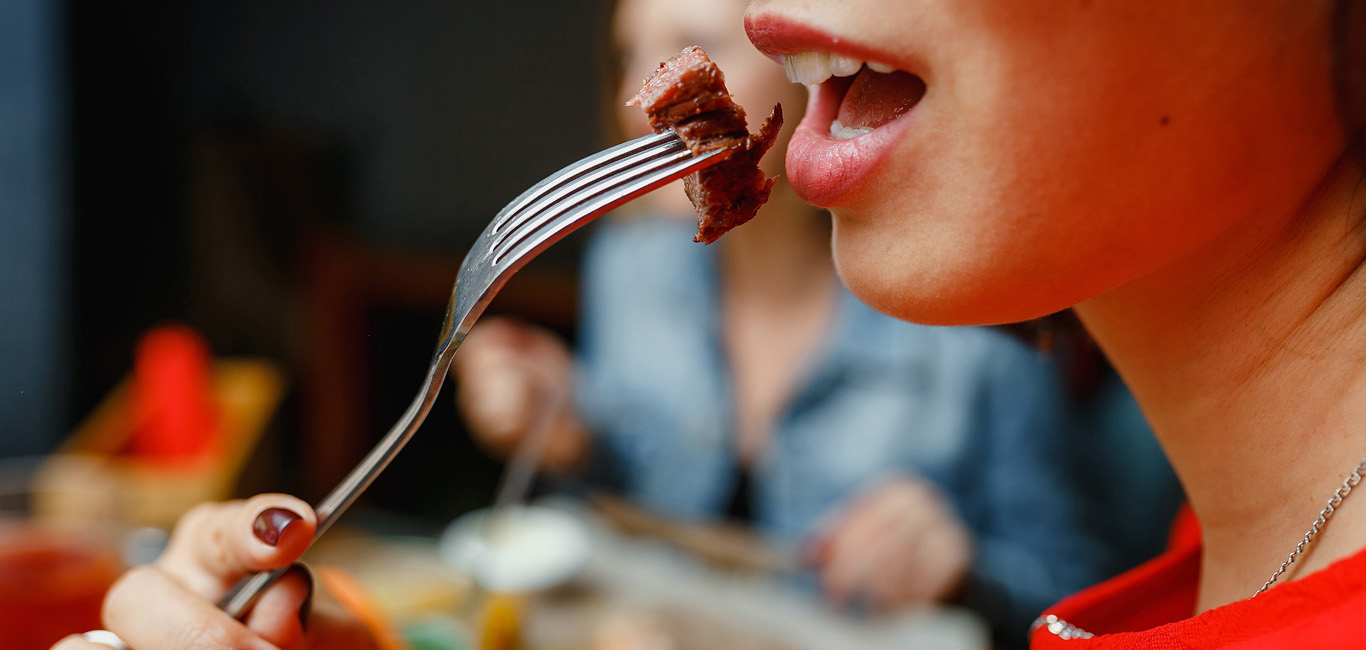
“What do you mean by carcinogen?” shoots back Sunil Shetty.
Shetty is not unaware of the meaning of carcinogen; he is only disturbed by the idea of red meat being labelled as such.
Shetty has been a restauranteur in Colombo, Sri Lanka, for the better part of three decades, with a penchant for serving and consuming red meat.
When the research is revealed, he retorts a few hours later with “What about this study?!”
Shetty is alluding to the 2019 research paper which postulates that red meat has negligible impact on the human body. The paper published in the Annals of Internal Medicine received severe backlash from health researchers from around the world. Some experts went so far as to say that the paper’s conclusions “harm the credibility of nutrition science and erode public trust in scientific research.”
Though Shetty and a large population of meat eaters are unwilling to accept the harmful effects of red meat, or at least feign ignorance in the face of towering evidence, the International Agency for Research on Cancer (the intergovernmental part of World Health Organization) maintains that processed meat is a Group 1 carcinogen.
IARC’s report reveals that eating 50 grams of processed meat each day increases cancer risk by 18 percent. And according to the American Cancer Society, this can raise lifetime risk for colon cancer from 5 percent to 6 percent. Basically, this puts processed red meat in the category of cigarettes and alcohol. But there is a reason why the IARC’s report emphasises on processed meat (bacon, sausage etc).
Unprocessed red meats are exceptional sources of complete protein. Red meat contains all the essential amino acids we need for muscle and tissue growth and maintenance. They are also a great source of Vitamin B12 (a water soluble nutrient necessary for the functioning of the nervous system) and zinc (vital for immune system functioning).
World Cancer Research Fund reports that anything more than three portions (350-500g) of unprocessed red meat per week is excess. The study also suggests that we should consume negligible amounts of processed red meat because “the evidence on processed meat and cancer is clear-cut. The data show that no level of intake can confidently be associated with a lack of risk. Processed meats are often high in salt, which can also increase the risk of high blood pressure and cardiovascular disease.”
While the effects of red meat on health have been researched extensively, most of the studies are observational, meaning they are ‘designed to detect associations but cannot prove causation’. Even the IARC’s findings state that consumption of unprocessed red meat probably increases the risk of colorectal (colon) cancer, but categorically state that processed red meat definitely increases the same risk. The IARC also suggests a connection between red meat consumption and prostate and pancreatic cancer.
Studies have also shown that preparation matters too.
Besides choosing lean red meat cuts, overcooking or charred variants of the meat have known to have detrimental effects on the body. It turns out, overcooked meat contains more of the cancer-causing compounds. Studies have shown that cooking to around 145-160 degrees Fahrenheit (around 62-71 degrees Celsius) is ideal.
Shetty presents his experience, stating that large sections of Sri Lankans, too, enjoy their meat overcooked and chewy. “I know who is at my restaurant by the way of their order. If it’s medium-rare or rare, the odds of it being someone from outside Sri Lanka are much higher,” he says.
Nevertheless, Shetty is unwilling to accept red meat as carcinogen. He insists that he eats far more than the suggested serving, has been doing so since he was a young man, and is healthier than ever. Perhaps it works for some, not so much for others. Either way, moderation is the key, as always.

















